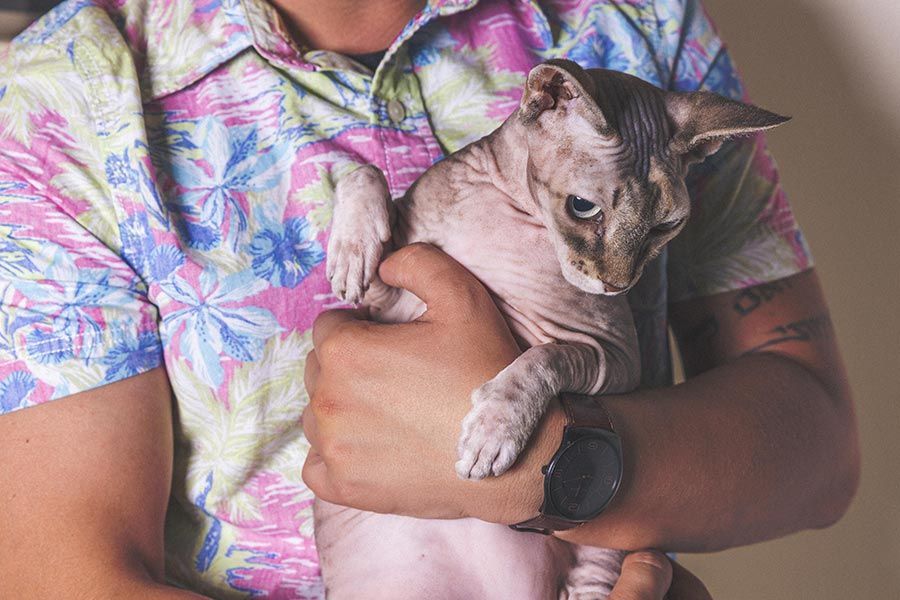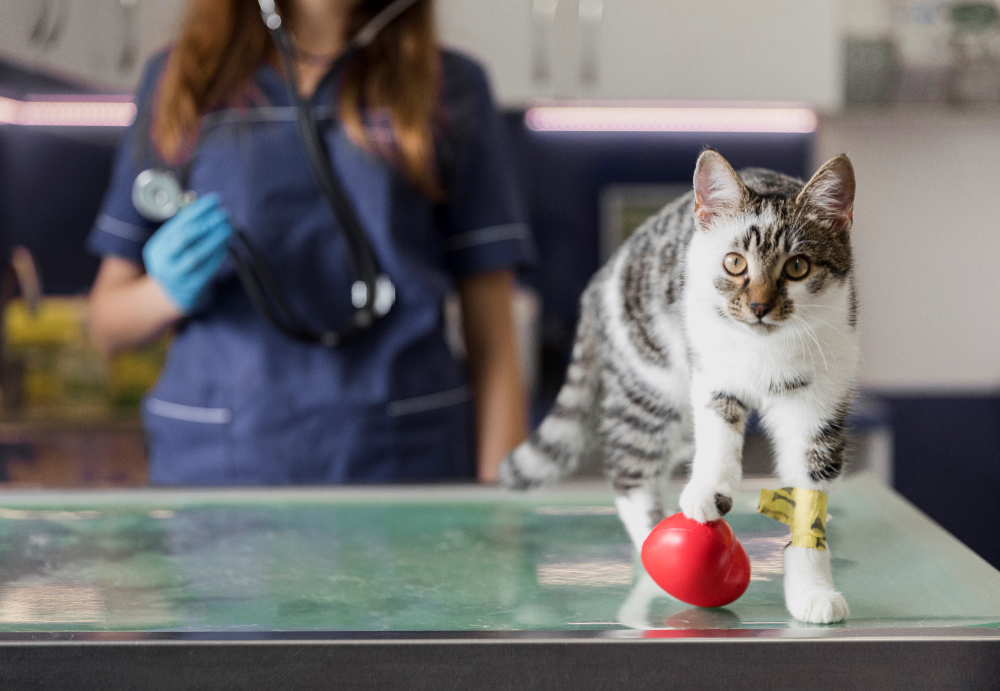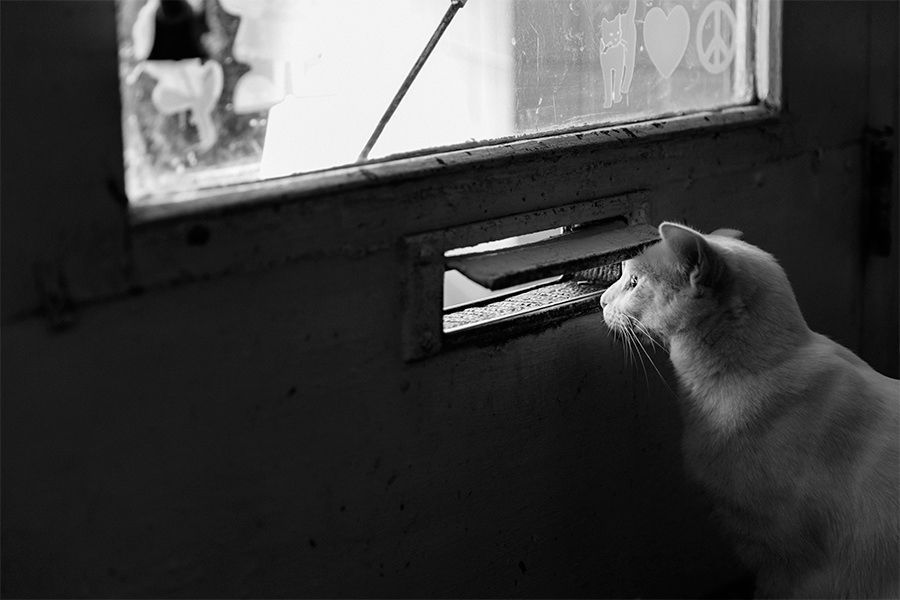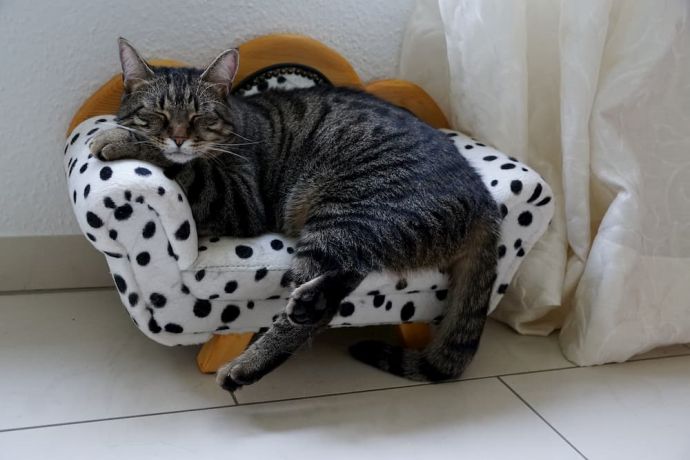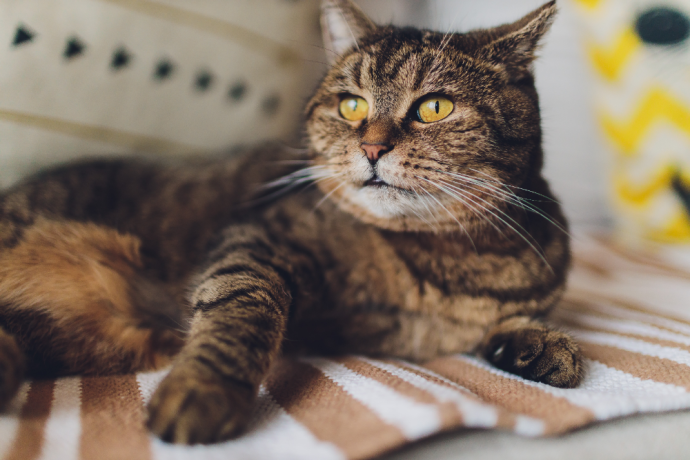Cat Vaccination: What Shots do Cats Need
Written by:
Author: Dr. Sara Ochoa
Dr. Sara Redding Ochoa is a veterinarian with many years of experience and higher education. During her time in veterinary school she was able to learn form some of the most well-known veterinarians from all over the world. Sara lives happily with her husband Greg and her babies Ruby the schnoodle, and Bam-Bam her bunny. Dr. Sara Redding Ochoa has a passion and love for animals that makes her a wonderful asset to our team.
View all 13 articlesLearn about our editorial process and veterinary review board.
Viewed: 381
Updated on: 01/14/2022
Have you just adopted a new cat? At your first vet visit with your pet, they will want to give your cat vaccination to help keep them healthy. Many viruses can cause your cat to be very sick. Certain vaccinations will help protect your pet from these diseases. The basic injection your veterinarian will recommend for you to get for your cat for them to stay healthy and happy. This article will cover the basic injections that your pet will need, what these viruses do, and why you need to vaccinate your pet for these diseases.
What Shots do Cats need?
The American Association of Feline Practitioners recommends that all pets receive the following injections:
Panleukopenia
Panleukopenia is like the distemper virus seen in dogs. It causes fever, lethargy, sneezing, and discharge from the eyes and nose. This virus can affect kittens and can potentially be deadly.
Feline Herpes Virus
Feline herpes is also known as rhinotracheitis. This causes upper respiratory signs in pets, such as a watery nose and eyes. These signs can progress to more severe airway problems.
Calicivirus
Calicivirus is a highly contagious virus that also is responsible for many upper respiratory diseases seen in cats. This disease causes sneezing and discharge from the eyes and nose. It also causes lesions in your pet’s mouth. Sometimes calicivirus can be deadly.
Rabies Vaccine
A rabies injection is required at least every 1 to 3 years, depending on your local laws. Rabies is a deadly virus that is transmitted via bite wounds from infected animals to a healthy animal. Unfortunately, there is no cure for rabies and is always fatal.
How often does do Cats need Vaccines?
Vaccination schedules will differ based on where you live and how old your pet is. Younger cats will need injections more often than adult or older pets.
Vaccinating Kittens
Kittens will need injections starting at 6 weeks of age. They will receive a booster vaccine every 3 to 4 weeks until they are 16 weeks old. Rabies injection will only be given once during this time between 12 and 16 weeks. The exact age your pet can get a rabies vaccine will depend on your local laws. Before your cat is 6 weeks old, they have antibodies that they received from their mother when they were nursing. These antibodies start to decrease around 6 weeks of age, so they need injections to booster their immune system.
Vaccinating Adults
Once your pet is an adult, they will only need injections once a year. What vaccines they will need each year will depend on your local laws and what virus are common for your area.
What is the 3 in 1 Vaccine?
A 3 in 1 injection is a vaccine for panleukopenia, herpes, and calicivirus. These are the 3 most common pathogens that your kitten could easily be exposed to all in one injection. This is also the one injection that your cat would receive each year to keep them protected from these viruses.
How much do Vaccines Cost for Cats?
The vaccines that your pet will need will depend on your cat’s lifestyle. Cats that are outdoors will need a 3 in 1 injection, Rabies vaccines, and Feline Leukemia vaccines. Feline leukemia is a highly contagious virus that your pet can catch from stray cats that they fight with outside. If you have a multi-pet household, your cat will need more injections than houses that have that just has one pet. If you adopt a new cat, make sure that your current cat is up to date on their injections before bringing the new pet home.
The cost of vaccines will differ depending on where you live. Some cities have low-cost injection clinics a few times a year. These would save you a little bit of money; however, they are usually at inconvenient times for many people. Your veterinarian can give you the cost of all needed injections for your pet. You should spend about $100 to $300+ at these visits, depending on what all vaccines and testing your veterinarian recommends.
What vaccines do indoor Cats need yearly?
Indoor cats do not need as many injections as pets that got outside. Indoor cats will still have to have a rabies injection. This is usually a state or local law that you must follow. The reason that indoor pets need injections is that rabies can be carried by bats that can easily fly into your house and bite your pet or your cat could accidentally get outside one day. Many indoor-only cats will not be vaccinated for feline leukemia since they have no way to contact any other stray cats. Some people will still want to vaccinate their pet for this virus just in case they get outside they will be protected.
READ MORE: How to Treat a Pregnant Cat
Do indoor Cats need to be Vaccinated?
Indoor cats do need to be vaccinated. When your cat is a kitten, they will need their initial vaccines to make sure that they start off their lives with a healthy immune system free of any potentially deadly diseases. They will also need a rabies vaccine at the time intervals required by your local law. After the initial vaccines, discuss with your veterinarian what vaccines your pet should get every year. Some vaccines only need a booster vaccine every 2 to 3 years.
If you have just adopted a new pet , there are many different vaccines that they may need. These vaccines can all depend on your pet, the location you live in, and your local laws. When your cat is at their appointment, your veterinarian can discuss all the pros and cons of each vaccine. This will help you decide what vaccine your pet needs each year or if your cat needs that vaccine at all. Vaccination is a way to help keep your pet happy and healthy so they can live a long, disease-free life.
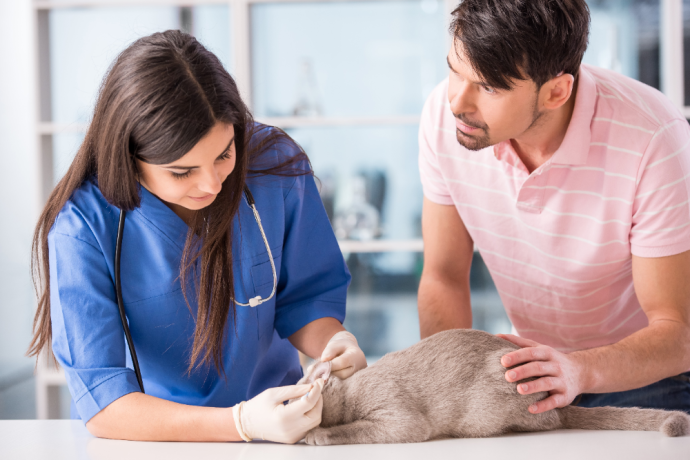 Cat Veterinary Tips Cat Fleas and Ticks: How to get rid of Fleas on Cats? (Vet Advice)
Cat Veterinary Tips Cat Fleas and Ticks: How to get rid of Fleas on Cats? (Vet Advice) - 185
- 0
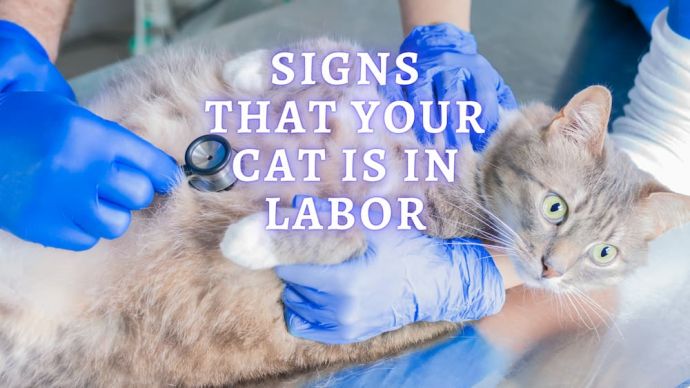 Cat Veterinary Tips Signs That Your Cat is in Labor: How to tell if a Cat is Pregnant?
Cat Veterinary Tips Signs That Your Cat is in Labor: How to tell if a Cat is Pregnant? - 15122
- 1
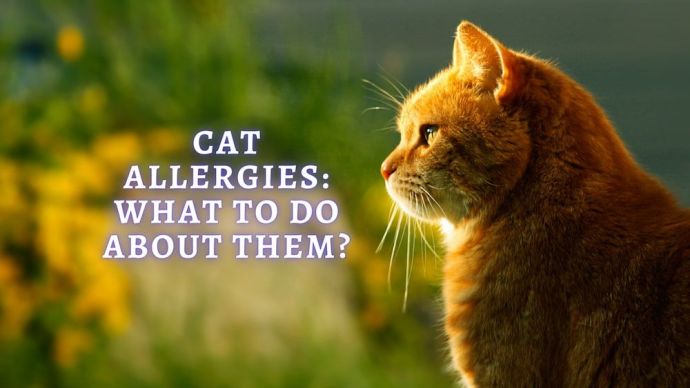 Cat Veterinary Tips Cat Allergies: Symptoms, Causes, Testing, Treatment, and Prevention (Vet Advice)
Cat Veterinary Tips Cat Allergies: Symptoms, Causes, Testing, Treatment, and Prevention (Vet Advice) - 340
- 0
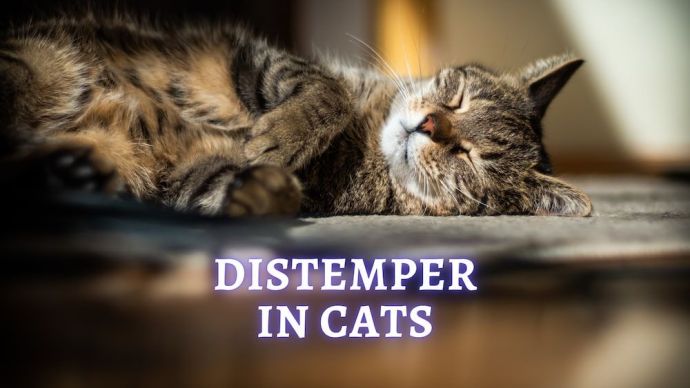 Cat Veterinary Tips Distemper in Cats: What is Feline Panleukopenia? Causes, Signs, Diagnosis and Treatment
Cat Veterinary Tips Distemper in Cats: What is Feline Panleukopenia? Causes, Signs, Diagnosis and Treatment - 299
- 0
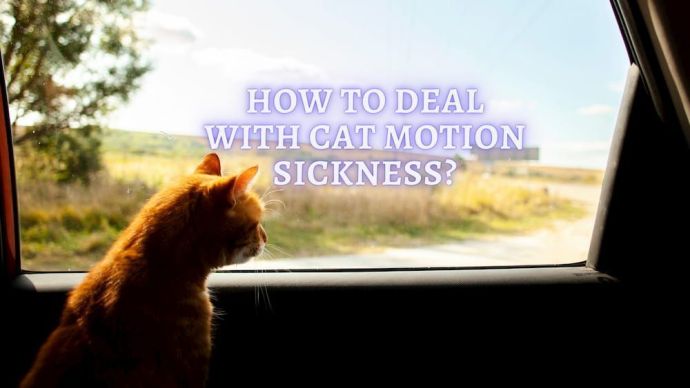 Cat Veterinary Tips Cat Motion Sickness: How to Deal With Motion Sickness in Cats?
Cat Veterinary Tips Cat Motion Sickness: How to Deal With Motion Sickness in Cats? - 765
- 0
 Cat Care Why Does My Cat Attack My Legs? 10 Reasons Why and What To Do About It (Vet-Approved Advice)
Cat Care Why Does My Cat Attack My Legs? 10 Reasons Why and What To Do About It (Vet-Approved Advice) - 46013
- 21
 Cat Veterinary Tips Cat Stomach Gurgling: Vet Advice on Why is Your Cat Stomach Gurgling?
Cat Veterinary Tips Cat Stomach Gurgling: Vet Advice on Why is Your Cat Stomach Gurgling? - 36469
- 4
 Cat Veterinary Tips My Cat Lost its Voice: Can Cats get Laryngitis? (Vet Advice)
Cat Veterinary Tips My Cat Lost its Voice: Can Cats get Laryngitis? (Vet Advice) - 23554
- 13









